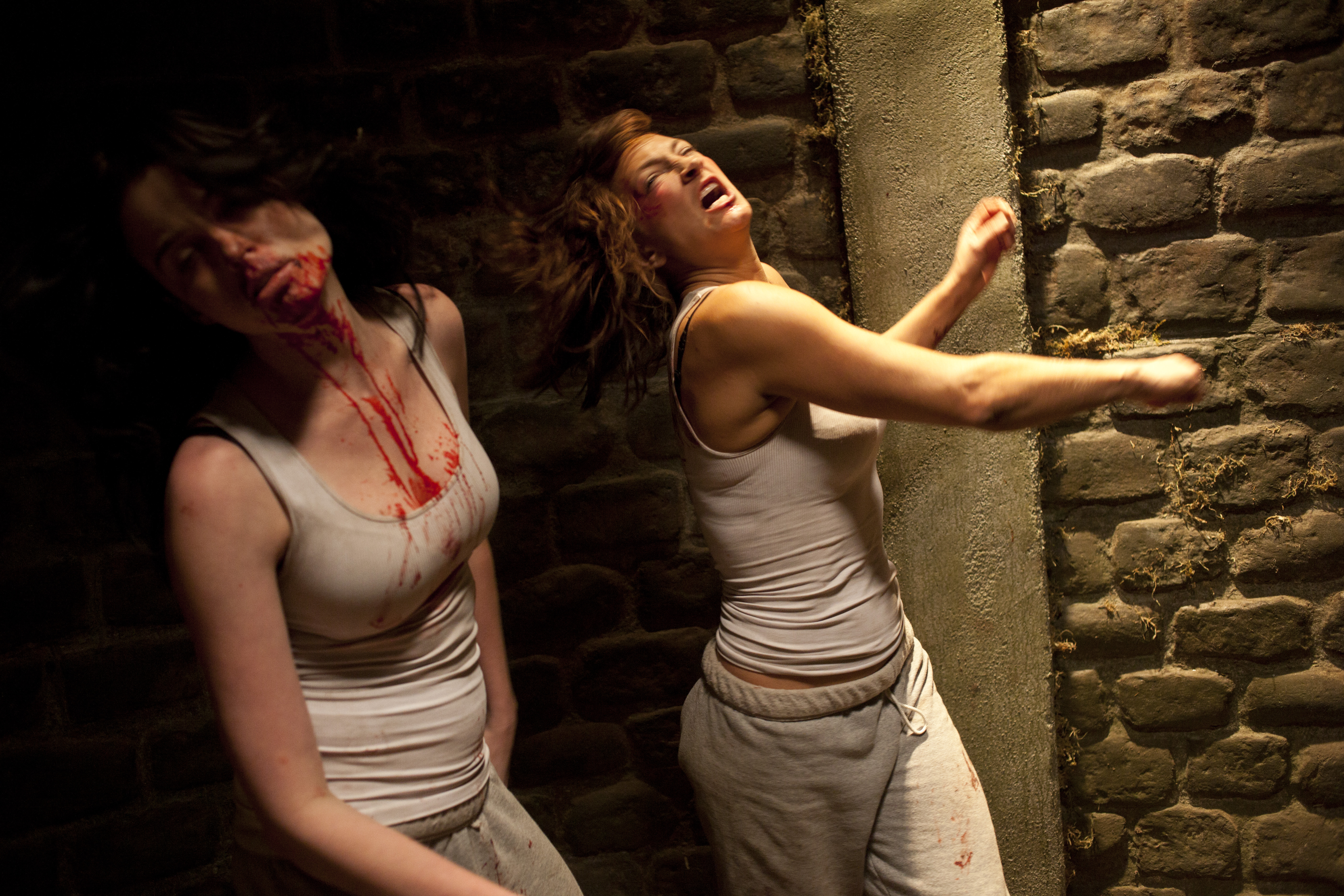Raze
Runs Fri., Jan. 24–Thurs., Jan. 30 at Grand Illusion. Not rated. 87 minutes.
Ordinarily, one would expect that a cult-movie blend of Game of Death and Kafka featuring women in a tournament of hand-to-hand fighting would be an automatic winner. Well, some people would expect that. Alas, Raze falls short of exploitation expectations, delivering its bucket of blood without revving up the necessary drive-in craziness.
The women in question have been kidnapped and are being held in a mysterious set of windowless chambers. Their captors make it known that if the women fail to fight to the death when they are paired in individual combat, their loved ones at home will be hurt. (After a round robin, one winner will survive and, supposedly, be released.) Between battles, the women exchange dialogue about outsmarting this system, but director Josh C. Waller is more interested in plunging straight into the bare-knuckle action than in complicating his concept. Our rooting interest lies with Sabrina (Zoe Bell), if only because she genuinely regrets the business of killing off her opponents. The same can’t be said for the Richard Sherman of the group, big-talking Phoebe (Rebecca Marshall), a bombshell who professes to enjoy the nastier parts of the dilemma.
They, and we, get a few glimpses of the overlords of this most dangerous game. They’re played by Doug Jones, the spindly mime usually seen beneath alien makeup or replaced by computer-generated creatures (he was Abe Sapien in the Hellboy movies), and Twin Peaks veteran Sherilyn Fenn. Bell makes a grim protagonist; the strapping Aussie is a longtime stuntwoman and the star of Quentin Tarantino’s Death Proof, part of the 2008 Grindhouse double-bill. Her blue-collar authenticity goes partway toward selling this unadorned situation, but the action gets repetitive and numbing pretty early on. A possible inspiration, the 2005 Georgian film 13 Tzameti, had a sinister network of cross-purposes and dark social comment to keep it aloft as it explored a similarly violent nightmare. Raze doesn’t come near that level of unease, and can’t even gin up any big surprises (save for one casting cameo that you might very easily not catch, given the muddy look of everything). Sorry, but this would not pass muster on the second half of a 1970s drive-in double-bill, which really ought to be the litmus test here.
film@seattleweekly.com







